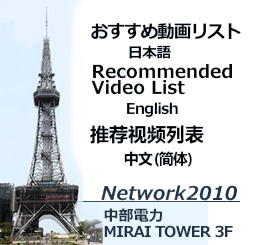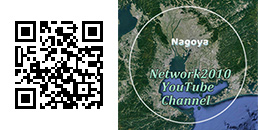- Nagoya in the Edo period(1603-1868)
- ①The Okehazama ancient battlefield
- ②Arimatsu to Miya post‐town
- ③Miya post-town
- ④Atuta Shrine
- ⑤Atsuta~Furuwatari
- ⑥Tachibana-cho
- ⑦Osu Kannon Temple
- ⑧Osu Monzencho
- ⑨Shirakawa Park
- ⑩Nagoya Castle Town 01
- ⑪Nagoya Castle Town 02
- ⑫Toshogu Shrine Festival
- ⑬Horikawa River1
- ⑭Horikawa River2

The Tachibana-cho circumference map in the Edo period(1603-1868)
If you passed the castle town gate, you would go into Tachibana-cho at the southernmost end of the Nagoya Castle Town. Many temples were built along with Minoji Way from Tachibana-cho to present Shirakawa Park in early stages of the Edo period(1603-1868). Tokugawa Mitsutomo (The second generation Lord of Owari Domain) built Higashi-betsuin temple, Eikokuji temple, etc. Moreover, he also accepted the performance of the play and exerted himself for activation of the town.

Higashi-betsuin
Higashi-betsuin is a temple of Otani school of Shin Buddhism. Tokugawa Mitsutomo(Lord of Owari Domain) contributed the ruins of Furuwatari Castle which was the castle of Oda Nobunaga's father Nobuhide, and this temple was built on the site which are 33,000 square meters in 1690. An exposition was held at the beginning of Meiji Era(1868-1912) , and administrative organs, such as Aichi Prefectural Office, ware located.

Higashi-betsuin01

Higashi-betsuin02

Higashi-betsuin03

Fujimigahara
Fujimigahara is a slightly elevated hill located in the northeast of Higashi-betsuin Temple. Since Mt. Fuji was able to be seen on the fine day, this name was given on the fine day.

Torinji
Torinji temple is one of the Zen Buddhism 3 denominations,Rinzai school,Sodo school,Obaku school. Ingen invited from China built Manpukuji Temple in Kyoto in 1654, and it spread all over the country. Torinji founded in 1674 is the temple of Obaku school of Zen Buddhism.

Nishi Betsuin
Nishi Betsuin is the temple of Honganji school of Jodo Shinshu Buddhism. This temple was also reconstructed in Nagoya when the capital of Owari Clan relocated to Nagoya from Kiyosu in 1609. In 1817,the Japanese‐style painter Katsushika Hokusai representing Japan drew the large drawing of 120 mat size(about 216 square meters) in the precincts of the temple, and the subject was known all over the country.

Suisetsuro
Suisetsuro is the a Japanese‐style restaurant located at the northernmost end of Fujimigahara. It was known as a scenic spot which could also see Mt. Fuji in the distance. While literary persons as haiku poet,calligrapher and others enjoyed the scene, they were drinking together.
Video
【Video】


